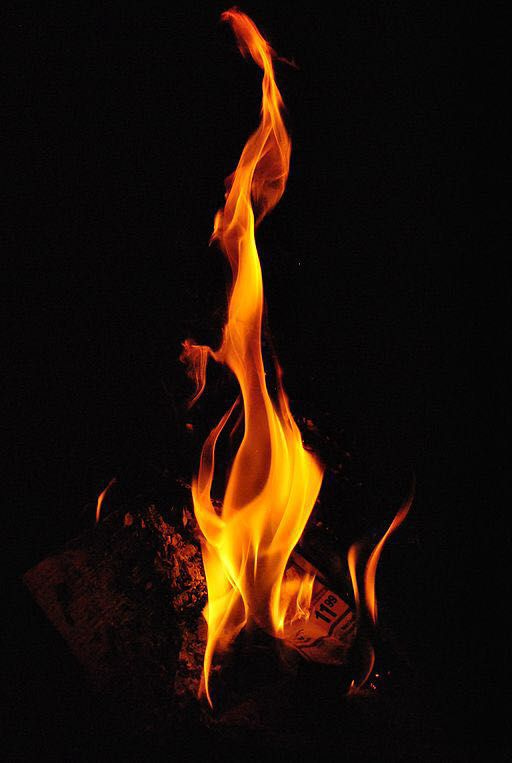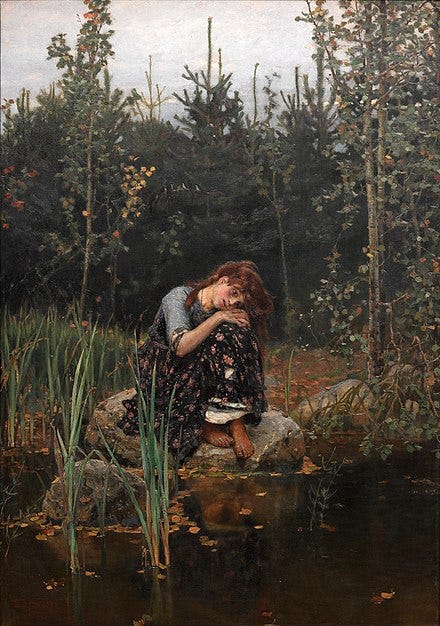Come in the middle? Here’re links to ➡️ Chapter One, Chapter 2, Chapter 3, Chapter 4, Chapter 5, Chapter 6, Chapter 7, Chapter 8, Chapter 9 , Chapter 10, Chapter 11, Chapter 12, Chapter 13, Chapter 14 , Chapter 15 , Chapter 16, Chapter 17, Chapter 18, Chapter 19, Chapter 20, Chapter 21
Send in the Clowns
I weep when famous people die: I cried when Audrey Hepburn died and bought stamps and pictures. I cried when Princess Di died and taped and watched the funeral and all the gory tabloid details. I’m a staunch Democrat and I cried when Ronald Reagan died and watched every second of his funeral. I’m Jewish and I wept when John Paul the II died, and followed not only the funeral but watched TV endlessly for white smoke to signal that a new pope had been named.
No one famous who matters to me has died today. I do not say this easily. It’s Sunday. I live downtown next to St. Patrick’s Church. As John Donne told us in Meditation XVII,
No man is an island entire of itself; every man is a piece of the continent, a part of the main. If a clod be washed away by the sea, Europe is the less, as well as if a promontory were, as well as if the manor of thy friend’s or of thine own were. Any man’s death diminishes me, because I am involved in mankind, and therefore never send to know for whom the bell tolls. It tolls for thee.
When John Updike died, I read. First I wept, e-mailed my daughter and my former and much beloved student Sarah K., who were also, I learned, weeping. But I couldn’t stop crying. I reread Updike because I have always it seems been reading him. He encourages me:
Yet, of course at each stage even in the narrowest passage, I had air to breathe, daily comforts and amusements, companions, and the blessed margin of unforeseeing that pads our adventure “here below”—a frequent phrase of my grandfather’s, locating this world in relation to a better.
When my daughter was about to have her baby, my granddaughter, I sat up in bed at 1 a.m. positive that my daughter was in labor. While I sat upright, her call came—she was in labor. On the first flight out in the morning I flew to her side for this blesséd gift of life: a grandchild in my arms, my daughter in my arms, her husband in my arms. Perhaps my son would come from New York where he lives when he is not in Australia. My son in my arms.
While I waited to fly, I slept: I went into the art room and on the blackboard is the drawing of the clowns and circus performers that I drew when I was a teenager and that I’d filled in with colored chalk, the skin nude, the costumes gold and red. What remains now is the outline of my drawing with no colors—amazing that it is still here in this room with so many years gone past. What I am assigned to do is to make a new drawing, but I am drawn solely to the outline on the board. All I want to do, all I will do is fill that in with any chalk I can find. I don’t care about the assignment.
I’ve said here I’ve wanted to shout, “Fire.”
I have slid the scenery panels of my life through backstage grooves while I’ve tried to kill myself off with binge smoking and drinking. But I’m lousy at both it turns out. I get drunk fast and want to live. So I do neither—well, occasionally, I do both. Or, I am too much of a survivor. But one must not speak too soon.
While I wait for the bell to toll, the clown in the circus breaks through my transparent skin. My skin, the clown: beryl-blue like sapphire. Is the color of fire red? I think of the blue inside. I think green fire, white fire, black fire.
Maurice Blanchot says:
The question concerning the disaster is part of the disaster: it is not an interrogation, but a prayer, an entreaty, a call for help. The disaster appeals to the disaster that the idea of salvation, of redemption might not yet be affirmed, and might, drifting debris, sustain fear.
The disaster: inopportune.
Many years ago I stood with D. where he grew up and watched a fire. The heat was so incredibly hot it reminded me of something I learned in physics: the fact that the air around a lightning bolt is hotter than the surface of the sun. It was a barn burning—not with any political or racial overtones, but a necessary burn of an old wooden grain bin in the center of town in Whiting, Iowa. It’s a common enough event in rural parts of our country.
It was a controlled burn.
We were on the brink of disaster. The burn was not.
The disaster: bewitched.
The burn in Iowa didn’t spread. It took place on a Saturday morning. Everyone in town knew about it. That’s some six hundred people. And I suppose some of the surrounding townspeople had heard. The fire department burned the bin because it was no longer used. It had been in the center of town—the tallest building, about the height of a Washington office tower—for fifty or sixty years and held seed corn or soy beans. Wooden bins are rarely used now for this kind of storage.
The fire began inside the old bin. It burned from the inside out to keep it under control. Very quickly the entire structure was in flames but with a certain order—if anything can ever burn in an order—that made the walls fall in on themselves. The old buildings nearby were never in danger.
The firemen were so certain of their ability to control the fire that they allowed onlookers to stand, in my opinion, way too close—though I’m forever glad to have been there with the heat in my face. The heat of this fire made me understand the power of lightning because the fire burned into me, into every part of me. Later, the ashes smoked and heated the air long past nightfall.
The space between us in our bed was a conflagration that neither of us could safely enter. That space was an uncontrolled fire. It is safety that is key to my analogy. One can create a conflagration in marriage or in betrayal of it. The controlled fire that burned the bin in D.’s home town makes my analogy clear. No one needed to be pulled from that fire. All were safe from it though in itself it was a burning danger. This is the difference between a controlled fire and a conflagration.
This is of interest to me and my penchant for the analytical, but it is hardly newsworthy as all of us who watch television or read the papers know.
So go ahead: Send in the clowns.
Or give me the end of the Grimm fairy tale “Brother and Sister”:
And as soon as the bewitcher was burnt to ashes, the roebuck changed his shape, and received his human form again, so the sister and brother lived happily together all their lives.
Grateful acknowledgment is made to the following for permission to reprint previously published material in chapter 22: John Updike: Excerpt from Self-Consciousness, First Ballantine Books Edition, NY, 1990, deemed fair use by Random House, Inc.
Maurice Blanchot: Excerpt reprinted from The Writing of the Disaster by Maurice Blanchot, translated by Ann Smock, by permission of the University of Nebraska Press. Copyright 1986 by the University of Nebraska Press.
Coming next: Chapter 23: “P.S. I Love You?” Table of Contents
Love,





You start this chapter desperate for a connection to anyone, anywhere. While I understand Dunne’s line, 'No man is an island,' the sadness of human life is that we are all lone islands seeking a narrow isthmus. With D. you watch destruction, and hope for Grimm clowns. Touched.
Wait, D is from Iowa? Another surprise commonality. Also, your picture of the controlled burn -- that proximity to disaster that isn't actually disaster -- brings back powerful memories of controlled burns that I did with the Forest Service in Montana. This was how we learned the most about fire behavior -- the closest we ever got to big fire. Sometimes the flames were a hundred feet high in the middle of the burn. A blaze like that creates its own weather. And when you are a rookie stationed along the edge with a nozzle, so you can keep the fire from jumping the line, it can feel like your face is melting.
I once watched tree bark ignite 20 feet outside the burn just from radiant heat. Awe-inspiring.